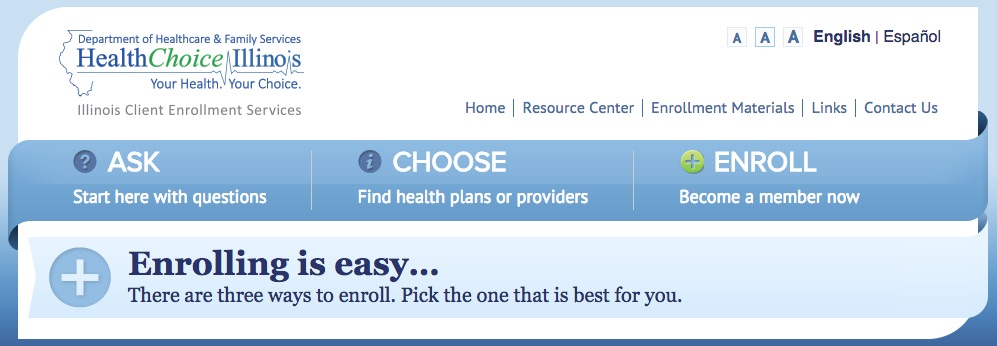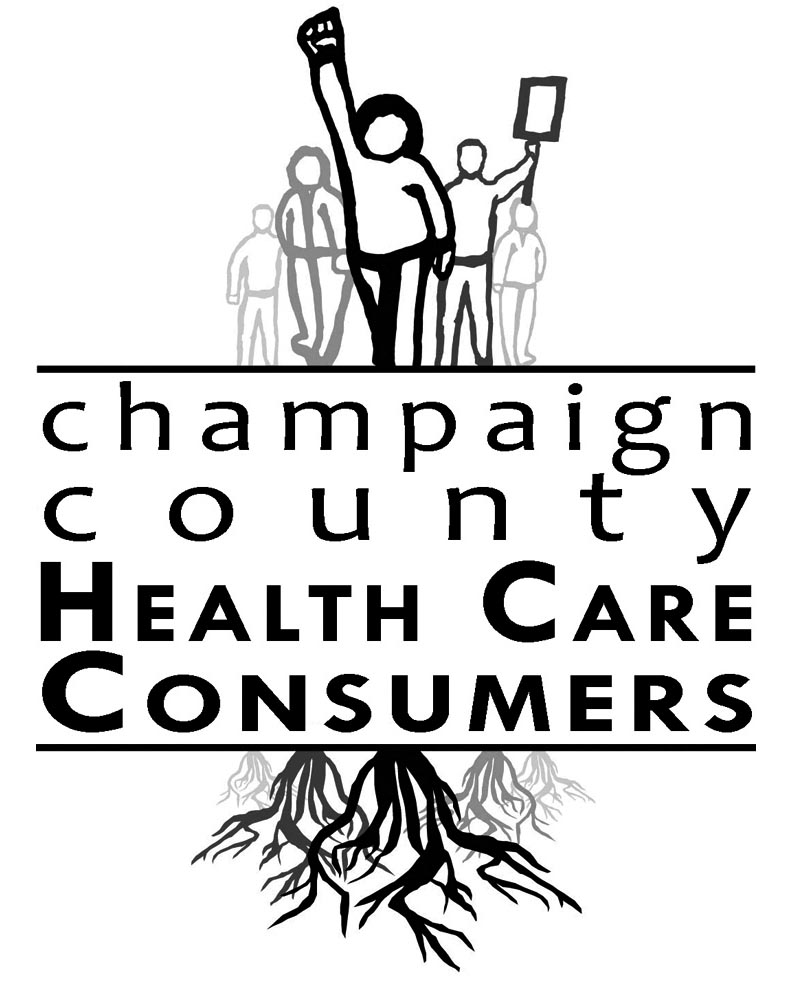Category Archives: Resource Guides
Do you have a Health Choice Illinois (Medicaid Managed Care) plan?
June 12, 2018
If you got enrolled into a Health Choice Illinois plan (a Medicaid Managed Care plan) on April 1, 2018, you need to make sure you that you are on the right plan for you!
Too many community members have been “auto assigned” to plans that do not include their health care providers, or do not cover the prescription medications they need, and the time to change plans is running out (June 30, 2018 is the last chance to change!).
Make sure the plan you are on is right for you!
To make sure that your plan is right for you, check with your health care providers to make sure they are “in-network” for that plan (see further below to learn about what plans each major health care provider is accepting).
Medicaid Managed Care Information
Medicaid Managed Care began for Champaign County on April 1st, 2018. Folks should have already received information from the plan in which they were enrolled. If anyone has questions about what plan they have or how to switch, contact CCHCC at (217) 352-6533. Everyone new to managed care has 90 days to switch and only one switch can be made before the plan is locked in for a year. For more information and a comparison chart showing the hospitals in network with each plan, see the handouts below:

Supplemental Security Income (SSI): How to apply for SSI
How to Apply for SSI
STEP 1: How do you apply for SSI?
Call the Social Security Advisor at 1-800-772-1213. The person you talk to will give you a date and time for your application interview. Parents and guardians can apply for blind or disabled children under age 18.
STEP 2: What should you do once you set up your interview?
SSI applications involve the completion of many forms and documentation. Two major forms to be completed are the Disability Report and the Vocational Report. Social Security will send you these forms. These forms are long and will take some time to complete, but the important thing to remember is accuracy and details. Take as much time as you need, and remember:assistance completing forms is available. Just ask!
STEP 3: What should you take to the interview?
You should have the following things before you apply. Even if you don’t have all of the things listed, apply anyway. If possible, please take:
- Your Social Security card or a record of your Social Security number;
- Your birth certificate or other proof of your age;
- Information about the home where you live, such as your mortgage or your lease and landlord’s name;
- Payroll slips, bank books, insurance policies, burial fund records and other information about your income and the things you own;
- The names,addresses and telephone numbers of doctors, hospitals, and clinics that have seen you, if you are applying for disability benefits; and
- Proof ofU.S. citizenship or eligible non-citizen status.
You also should take your checkbook or other papers that show your bank, credit union or financial institution account number. Your benefits can be deposited directly into your account.
STEP 4: What should I expect during an interview?
A claims representative will conduct the interview. You are allowed to bring someone to the interview with you. A practice session prior to the interview is a good suggestion.
An initial application will be completed during this meeting. There will be many forms to sign, including authorizations for release of medical records. During the interview you will be asked many questions regarding the ways your disability limits you. Being honest and thorough while answering these questions will greatly help your case.
STEP 5: What happens after the interview?
After the interview, the claims representative will mail the file to the Disability Determination Service in Springfield. The file will then be assigned to a Disability Evaluation Analyst (DEA)approximately 7-10 days after the interview. This is your new contact: the person who will review your paperwork and decide whether or not you are eligible for benefits.
Most applicants will receive a Daily Activities Questionnaire a few weeks after the initial interview. The form assesses the functional limitations and should be completed with an emphasis on limitations,not strengths.
STEP 6: What about additional medical and non-medical evidence?
Thorough medical documentation is critical for SSI applications. Without detailed and current medical documentation, a person cannot be found eligible for SSI. All existing medical records, a current evaluation, and third party reports are necessary. Other supporting documents, such as statements from your teachers describing how your disability limits you, are helpful as well.
What should you do if you are denied?
APPEAL! many people who are initially turned down for SSI benefits end up receiving them once they appeal.
Can anyone help me?
CCHCC has volunteers who can answer many of your questions about SSI. In some cases, volunteer advocates will be able to help you all the way through the process.
Adapted from http://www.ssa.gov/pubs
Click here to download this document as a PDF.
National Health Reform Educational Workshops – Workshop 3 — Finding Affordable Health Care: Local Programs & Resources
On Wednesday, December 1, 2010, CCHCC held the third and final workshop in a series of National Health Reform Educational Workshops. Workshop 3 focused on local resources, programs and clinics providing affordable health care and dental care for low-income and uninsured residents of our community. The workshop was very successful, with over 50 community members in attendance.
Meeting Materials:
Agenda
Workshop Survey
CCHCC Consumer Health Hotline Flyer
Resources & Information:
Affordable Mental/Behavioral Health Services
Help with Your Prescription Medicine
Low Cost Dental Care
Low Cost Health Care in Champaign County
Women’s Health Fact Sheet
